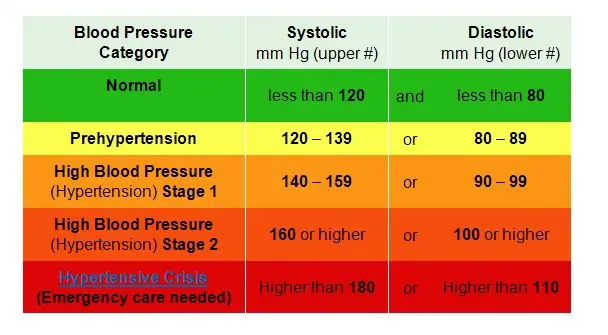Hypertension (HTN) refers to high blood pressure (BP).
• Normal blood pressure for adults is commonly considered to be less than 120/80.
• High blood pressure is diagnosed after elevated blood pressure readings have been sustained across three or more periodic readings, and is categorized as
-Elevated: 120–129/ less than 80
-HTN stage 1: 130–139/80–89
-HTN stage 2: greater than 140/ greater than 9
- Lifestyle factors are defined as the influences on our health over which we have control like smoking, drug use, wearing a seat belt, exercising, etc.
- Lifestyle factors account for 90 to 95 percent of cases of hypertension. This type of high blood pressure is called essential hypertension.
- In the remaining 5 to 10 percent of cases, doctors are able to identify a specific cause; this type is called secondary hypertension.

By: Dave Rosenblum
Hypertension in the media
This piece of media makes the following claims:
- If you change the way you eat you can lower your blood pressure
- If you exercise you can lower your blood pressure.
This piece of media makes the following claim:
- By doing isometric hand exercises you can lower your blood pressure
This piece of media makes the following claims:
- Following the Dash diet can lower blood pressure
- Regular physical activity can lower blood pressure
- Magnesium and calcium supplements can lower blood pressure
- Increasing potassium intake can lower blood pressure
- Practicing the 4-7-8 breathing method can lower blood pressure
McDonald, ,. C., & Blackwell, J. C. (2006). What lifestyle changes should we recommend for the patient with newly diagnosed hypertension?. Journal Of Family Practice, 55(11), 991-993.
- This article discusses lifestyle changes that are important to the prevention and management of hypertension.
- It states the Dietary Approaches to Stop Hypertension diet (DASH diet}—with salt restriction and increased fruit, vegetable, calcium, and potassium intake—reduces blood pressure and should be recommended.
- Also, aerobic exercise is effective in reducing blood pressure.
- Reduction of dietary sodium intake as well as reduced alcohol consumption has also been proven to lower blood pressure.
- This article supports videos one and three in their claims. This article does not contain any information supporting video 2.
Lifestyle changes to combat hypertension. (2001). Nursing, 31(8), 40.
- This article discusses lifestyle change to combat hypertension.
- The first topic addressed is smoking and it explains how it is important to quit, due to it being a risk factor for hypertension and heart disease.
- Nutrition is also discussed, and emphasis is put on limiting sodium intake and implementing the DASH diet.
- It also brings up exercise and how it is important to maintain a healthy weight.
- The last points brought up are about limiting alcohol intake and reducing stress.
- This article supports videos one and three in their claims. This article does not contain any information supporting video 2.
Lochner, J., Rugge, B., & Judkins, D. (2006). How effective are lifestyle changes for controlling hypertension? (cover story). Journal Of Family Practice, 55(1), 73-74.
- This article discusses lifestyle changes that if implemented can lower blood pressure
- According the the article regular aerobic exercise, weight loss of 3% to 9% of body weight, reduced dietary salt, the DASH diet, and moderation of alcohol intake are all lifestyle interventions that lower blood pressure.
- Average blood pressure decreases range from 3 to 11 mm Hg systolic and 2.5 to 5.5 mm Hg diastolic, depending on the particular intervention.
- This article supports claims made in video one and three. This article has no information supporting video 2.

By: David Stewart
- After completing my research, I believe video one and three to be credible.
- I would consider what is presented in these videos to be fact.
- I believe video two is fiction because throughout my research I could not find any information regarding this particular intervention.
- I would not consider video two’s interventions if I wanted to lower my blood pressure. I would follow the lifestyle changes recommended in videos one and three to lower my blood pressure.

